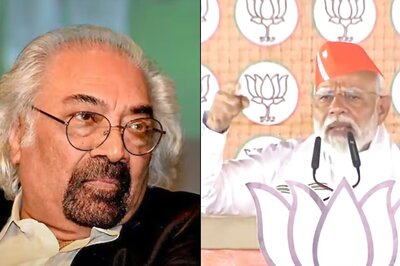
views
New Delhi: The Protection of Plant Varieties and Farmers’ Rights Authority (PPV&FRA) at the ministry of agriculture and farmers’ welfare had to do a rethink when research and advocacy group Gene Campaign last month sent a letter raising concerns over the “objectionable” interpretation of farmers and their rights in the frequently asked questions (FAQ) booklet uploaded on the official website. It’s been nearly a month since the booklet was taken down following the letter but the authority is yet to upload a revised version.
Dr Suman Sahai of the Gene Campaign, who was awarded the Padma Shri for her contribution to agriculture in 2011, on December 10 last year had written to Dr KV Prabhu, chairperson of the authority, appraising him of the way the FAQ booklet had interpreted farmers and farmers’ rights “contrary to the legislative intent” of the Protection of Plant Varieties and Farmers’ Rights Act (PPV&FR) 2001.
“The PPV&FR Act emerged as a unique legislation that stands out for the strength it has given to the rights of farmers…It is these rights of farmers that have been undermined by the language in the FAQ booklet created by the Authority,” the letter noted.
News18 reached out to Dr Prabhu, seeking answers on the booklet and why the revised version hasn’t been uploaded. He said that the authority has appointed a “professional committee” which is revising the document so that “the common man understands it in common language”.
“The booklet is not a direct representation of the Act, but no point will leave room for ambiguity in the new version. It is taking time because we are exploring translations in multiple languages,” he added.
What the FAQ booklet said
Providing clarity on why the FAQ booklet going against the Act assumes significance, Sahai told News18: “Not everything is legislated by Parliament. There are laws and there are policies. The booklet’s presence on the official website is a government policy. If the authority and the ministry say this is not law, then why have they put it up?”
A former member of multiple government boards and expert committee’s on agriculture and food, Sahai had pointed how the FAQ booklet, “unfortunately” and without intent, in its language had hinted of a “deliberate effort to weaken Farmers’ Rights to favour the seed industry”.
For instance, the booklet in Question 78 went against the Act to state that “only small and marginal farmers involved in subsistence farming can claim farmers’ rights” even though Question 5 correctly defined ‘What are Farmers’ Rights’. “Any farmer anywhere in India can claim farmers’ rights to the fullest extent,” Sahai said.
“Equally incorrect is the statement ‘what is allowed under farmers’ rights is only use of registered variety in a small scale in an unbranded manner’,” she added. The Act does not mention anything about scale but does proscribe branding of self-produced seed of a registered variety.
In questions 71 and 70, the booklet re-routed the legal understanding of farmers’ rights to mention “farmers’ exemption” instead. Experts have raised concerns over how this language is unlike the Indian law and sounds more like the International Union for the Protection of New Varieties of Plants (UPOV), which does not grant rights, only exemptions.
Furthermore, the letter also highlighted how Question 84 limits farmers’ rights as contained in Section 39 (1) (iv) of the Act by stating that it is “applicable only for subsistence and marginal farmers and not for commercial farmers”.
Cause for concern
Sahai insists that the FAQ booklet be critically seen along the developments of the PPV&FR Act 2001, the Seeds Bill 2004, 2019 and India’s initial inclination for UPOV membership. From this perspective, the FAQ booklet is “an attempt to misguide and provide basis to certain companies that want certain advantages not given in Indian law”.
Besides India, all other countries give rights to the breeder and not to the farmer. If the booklet is an accident and the chairperson of the authority does not know the law, then he should not be the chairperson, she said.
Under the Atal Bihari Vajpayee government in the early noughties, India had consciously chosen to move away from the UPOV as its membership would have imposed restrictions on farmers. Although it was under Vajpayee that India had applied for the UPOV membership, it was also his government which passed the PPV&FR Act 2001 – the only IPR legislation on plant varieties in the world – to protect farmers. The UPOV only provided farmers exemptions in law.
“Given the facts, it may be assumed, that the booklet is a deliberate attempt to undermine the strength of the Indian law. By negating in its booklet that farmers have rights not exemptions, they are providing a basis for farmer suffering,” Sahai added.
Pepsico India Holdings Ltd, which withdrew all its cases against nine farmers in Gujarat for alleged intellectual property “rights infringement” in May 2019, had used a language similar to the booklet as a basis for its cases. The global beverage and snack company had sued farmers for “illegally” growing the registered potato variety used to make Lay’s chips.
As a member of the committee that drafted the Act in 2001, Sahai told News18 that the logic of the booklet lay in the fact that “the biggest competitor to a seed company is the farmer”.
“Competition to grow and sell seeds is evident. That cannot be touched. What the seed companies are doing is curtailing the rights of the farmers to gain control of the seed sector,” she said.



















Comments
0 comment